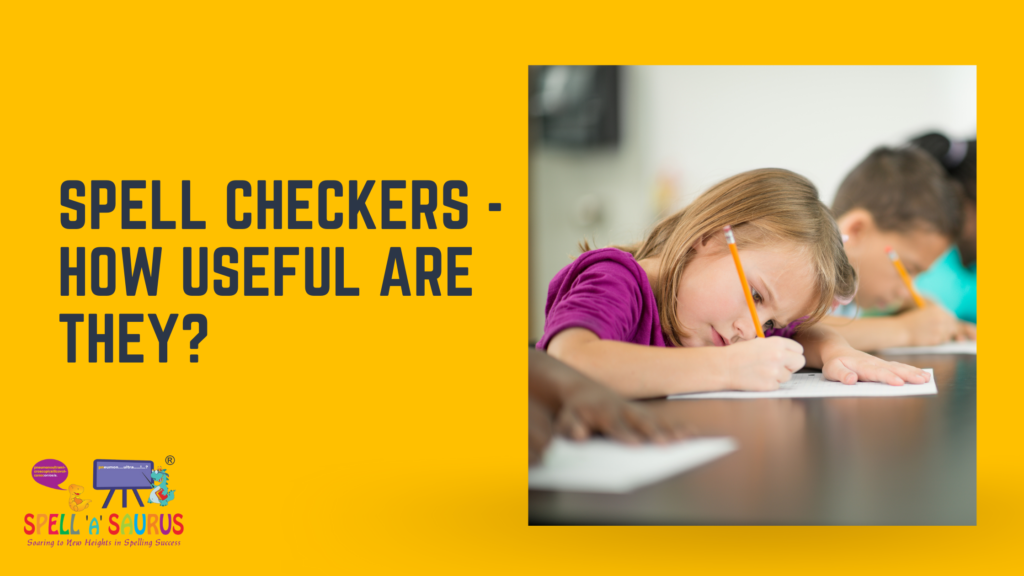I’m sure you’ve heard of Grammarly, right? Grammarly is a program that we’ve seen advertised a lot on the internet. You could now be wondering what the tool is for. Why am I watching this commercial over and over again? How can the tool assist me in improving my English spelling and hence my essays? What exactly is it? Don’t you think so?

Let me explain: Grammarly is a spell-checking tool, and today, in this article, we’ll learn what spell checkers are, how they work, and whether or not we can use them.
What is a spell checker?
A spell checker is a tool or program that allows you to double-check the spelling of words in a paragraph or large essay. It can also help you check the tone of a paragraph or an essay by paraphrasing the sentences. This tool might be used as a stand-alone application or it could be combined with other programs.
Benefits of a spell checker
The benefits of a spell checker are as follows:
- Identification
Spell checkers usually feature an online digital dictionary where they check the spellings of words. When you write a word, it is checked against their online dictionary and the misspelled word is highlighted or underlined.
- Time-saving
When you’re short on time or have a lot of work to do, you normally type quickly to get the job done. When you type quickly, you’re also more likely to make spelling mistakes. These spell checkers come to your rescue at this point, auto-correcting erroneous spelling so you don’t have to spend energy rereading the content you’ve typed.
Drawbacks of a spell checker
The drawbacks of a spell checker are as follows:
- Less accuracy
Many times, you may be writing a word that isn’t in the tool’s online dictionary, but there is a similar word with a minor difference in spelling and an entirely different meaning. In this case, the tool may highlight the correct spelling and display it as an incorrect spelling.
For example, the online tool’s dictionaries do not include the names of Indian people. Let’s assume there’s a boy named ‘Neel,’ but the term ‘Neel’ isn’t in the online dictionary, but there’s a similar word ‘NIL,’ which means insignificant, so the program will highlight ‘Neel,’ and show you that it’s a misspelled word. However, we all know that the spelling of ‘Neel’ is correct.
- You won’t learn from your mistakes
You won’t understand the meaning of a term or its spelling if you rely just on your spell checker program. Let’s say you’re always forgetting to write the word ‘believe.’ The letters I and ‘e’ are always swapped. Every time you write, the spell checker will auto-correct the word itself. You won’t learn how to spell ‘believe’ this way.
- Make you less confident
When you first start using a spell checker, you become fully reliant on it. They aren’t always very accurate. You must sometimes trust your intuition, but when you rely on the tool, you may lose confidence in yourself and begin to trust the tool, even if you believe what you wrote is true. It’s also possible that you won’t have access to a tool for some reason, and you’ll be dissatisfied because you don’t know how to spell the word you’re trying to type.
For example, children are in their growing stage (around 8 to 15 years), their brain is in the development stage. That is, they easily grasp the information given to them. It is easier for them to adapt to any activities or incidents occurring in their surroundings. Most likely, they will learn, what they see around them. During online classes, they are either using their mobile phones or laptop, and these electronic devices have integrated spell-checkers. This feature of electronic devices may affect children a lot for the given reason above, if not supervised or taken care of.
Are Spell checkers reliable?
In the backend, spell checkers have a set of rules and a dictionary. They aren’t powered by artificial intelligence, and they aren’t capable of improving over time.
The other consideration is accuracy; it is possible that it will not always display us the correct spelling we want to use.
It may also make you feel less confident in your grasp of Basic English.
Because the tool may or may not be available at all times, you cannot entirely rely on it.
Takeaways
We learned about the benefits and drawbacks of using spell checkers. We also discovered that the tool isn’t 100 percent accurate with English Grammar and that there are a lot of exceptions in English spellings that we can’t feed the program with.
So, if you’re utilizing a tool, don’t put all your faith in it or let the tool’s ideas undermine your confidence. If you need assistance with your English spelling and grammar, seek the advice of a professional.
How do you feel about the spell-checking tools? Please let me know in the comments section below.
